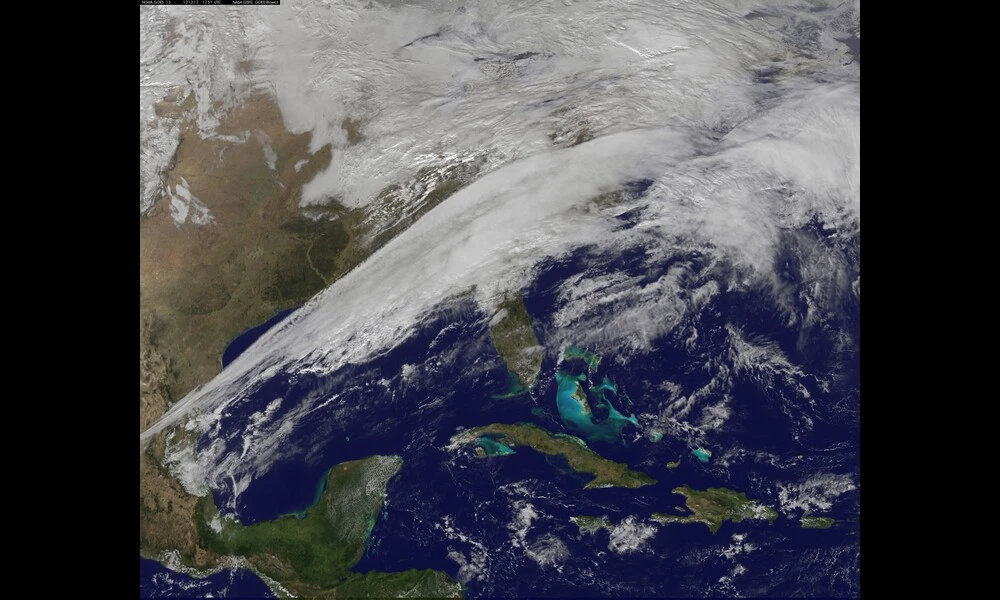Factors Influencing American Adoption of Climate-Friendly Behaviors
Published on Mon Oct 30 2023 Satellite Sees a Sharp Line in Weather Today | NASA Goddard Space Flight Center on Flickr
Satellite Sees a Sharp Line in Weather Today | NASA Goddard Space Flight Center on FlickrNew research published in a preprint paper titled "Climate Action on the Mind: A Longitudinal Study of American’s Psychosocial Drivers of High Impact Climate Behaviors" sheds light on the psychological and social factors that influence Americans' adoption of high impact climate behaviors, such as installing rooftop solar panels and driving electric cars. The study aims to track the changes in these psychosocial factors over time to aid in the development of future policies and interventions.
The paper highlights the importance of behavior change in addressing climate change, stating that comprehensive policy initiatives alone are not enough. For example, the paper mentions the Inflation Reduction Act, which relies on household behavior changes, such as the adoption of electric vehicles and installation of rooftop solar, to significantly reduce carbon emissions. Understanding the beliefs and attitudes that drive climate behaviors is crucial for designing effective behavior-change campaigns and interventions.
The study identifies several key psychosocial factors that influence climate behaviors, including social norms, self-efficacy, consideration of behavior change, and personal benefits. Social norms play a significant role in shaping behavior, as people are more likely to adopt a behavior if they believe others in their social group are doing the same. Self-efficacy, or the belief in one's ability to affect change, is also crucial in motivating climate actions. Additionally, individuals are more likely to take action if they believe it will have personal benefits, such as saving money or improving their health.
The research reveals a complex picture of the American public's attitudes and adoption of high-impact climate behaviors. While adoption of these behaviors is increasing, the study found a reduction in several key enabling factors, such as perceived personal benefit and self-efficacy. This suggests that while more people are adopting climate-friendly behaviors, there may be challenges and barriers preventing widespread adoption.
The implications of these findings are significant for climate change mitigation efforts. Behavior change campaigns should focus not only on communicating incentives and availability of climate solutions but also on improving self-efficacy, highlighting personal benefits, and fostering a sense of normative responsibility and acceptance of these behaviors by others.
It is important to note that the research relied on self-reported data, and future studies could explore a wider range of behaviors. The findings suggest the need for ongoing monitoring and interventions that target the changing psychosocial states to support the widespread adoption of high-impact climate behaviors. Further research is needed to understand the forces driving these changes and to develop precise interventions that create the necessary enabling environment for behavior change.
Overall, this longitudinal study provides valuable insights into the mindset and attitudes of Americans regarding high impact climate behaviors. By understanding the psychosocial factors that influence behavior change, policymakers and program designers can develop targeted strategies to accelerate the adoption of climate-friendly behaviors and contribute to carbon reduction goals.



